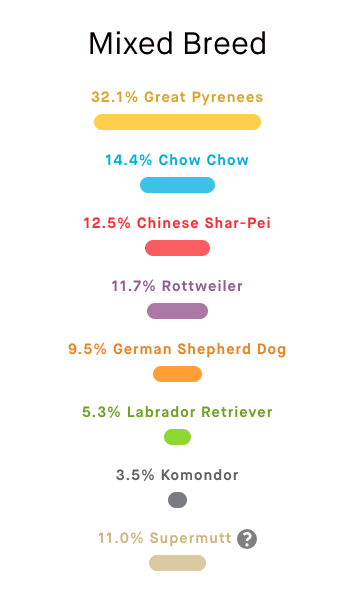I fell in love with a rescue puppy b/c obviously my life needs to be more complicated. 🙄😍
Twitter peeps: what is he? Some sort of Rottweiler mix is my guess but mixed with what?
Twitter peeps: what is he? Some sort of Rottweiler mix is my guess but mixed with what?

#Guinness update: this puppy has gained almost 6 lbs in 2 weeks, so now in addition to breed guesses I’m taking bets on his adult weight 

#Guinness update: currently 40 lbs at just over 4 months. I find internet info on dog growth charts to be frustratingly contradictory; where are the dog versions of CDC/WHO growth curves? 

#Guinness update: now 8 months old, large enough that the children try to ride him like a pony, still has ridiculous teddy bear ears, still haven’t gotten around to genotyping him 

#Guinness update: I got his breed results from @embarkvet! By far the most common breed guesses have been Rottie/Shar Pei/German Shephard -- which are all in there -- but no one guessed Great Pyrenees 



@embarkvet Percentage breakdown 

cc: @PKoellinger — not quite what the rescue place told us!
#Guinness update: He still wants to cuddle me like a baby lap dog, but is not, in fact, a baby lap dog 

• • •
Missing some Tweet in this thread? You can try to
force a refresh








